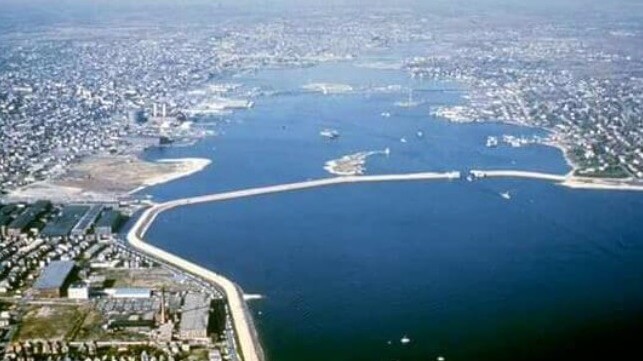Fishing Industry Calls for Additional Review of Offshore Wind Industry

One of the U.S.’s leading commercial fishing ports has joined a growing list of stakeholders demanding greater protection of the fishing industry from possible threats emanating from the rapidly expanding offshore wind industry. The New Bedford Port Authority (NBPA) in a letter to the Bureau of Ocean Energy Management is calling for the federal government to increase protections for the commercial fishing industry. They are cautioning that current policies for offshore wind development could greatly underestimate the shoreside impacts on seafood processors and fleet operations in ports.
In a letter to BOEM Director Amanda Lefton, NBPA says that the ongoing plans to advance offshore wind must safeguard the viability of commercial fishing enterprises. The letter addresses BOEM's draft guidelines for Offshore Wind Fisheries Mitigation and supplements comments the NBPA submitted in January advocating for efforts requiring offshore wind developers to commit to mitigation measures for the fishing industry.
“The uncertainty about the total impacts of wind energy development is a major reason why the fishing industry distrusts the current process,” the NBPA writes in its letter to BOEM. “The fishing industry deserves a complete understanding and sound science of the impacts on habitats, safety, and navigation, and the social and economic impacts to the fisheries and the ports they rely on,” the letter says.
It added that the commercial fishing industry strongly believes that the burden of proof must lie with developers to prove to the fishing community that they are not causing environmental or economic harm, something that should be done before any development of offshore wind projects is allowed to proceed.
“BOEM and all those working to develop the offshore wind resource must take into account New Bedford’s unique role as the epicenter of commercial fishing from the Gulf of Maine to the Carolinas,” said Jon Mitchell, New Bedford Mayor.
As the U.S.’s most valuable commercial fishing port, they highlighted that New Bedford however is also becoming the home to the country’s first purpose-built offshore wind servicing facility and an emerging epicenter for the fast-developing offshore wind industry. NBPA writes that it is concerned that BOEM is largely being guided by wind farm developers to the detriment of the commercial fishing industry. This is based on their belief that BOEM is relying on statements and studies from offshore wind developers regarding their impact on commercial fishing.
NBPA contends that while BOEM has repeatedly said it may revisit mitigation if there is an issue, the bureau has not committed to forcing wind developers to stand by their assertions regarding the impact on the fisheries. The Responsible Offshore Development Alliance and the Seafood Harvesters of America are some of the other stakeholders that have raised concerns that the offshore wind industry could have adverse impacts on commercial fishing.
“BOEM has left the fisherman with the impression that it is their burden to come back to BOEM and show the need for mitigation,” according to the letter. It adds that a commitment to properly and extensively fund surveys pre, during and post-construction by wind developers using a collaborative approach will go a long way in gaining trust from the fishing industry.
The latest effort to raise concerns about the development of offshore wind farms comes as BOEM is seeking to move forward aggressively to achieve the goal of deploying 30 GW of offshore wind power by 2030. The bureau has moved to identify new target areas and develop the leasing process for offshore wind farms, including expansion of projects to the Pacific Coast and the Gulf of Maine. This comes after highly successful actions including the record-setting auction for the leases in the New York Bight.

that matters most
Get the latest maritime news delivered to your inbox daily.
Commercial fishing is a $5.5 billion industry in the U.S and the Northeast alone is responsible for 30 percent of landings. New Bedford has been the most economically valuable fishing port in the country for 21 straight years, worth $451 million in vessel landings in 2019.
New Bedford however is also home to the U.S.’s first purpose-built offshore wind servicing facility being developed by Vineyard Wind. The firm is building the country’s first large-scale offshore wind project with a capacity to generate 800 MW and a shoreside facility that will provide remote control for turbines, electrical service platforms, and the base for other offshore/onshore assets. It will also serve as a hub for coordination between operations and maintenance vessels.
